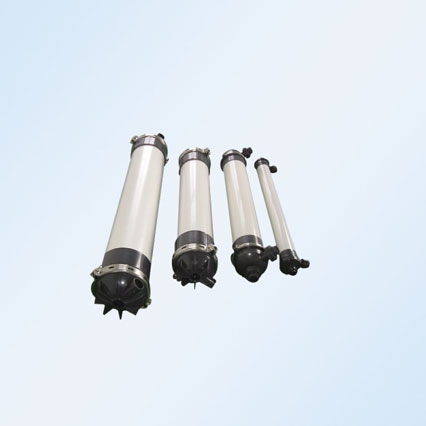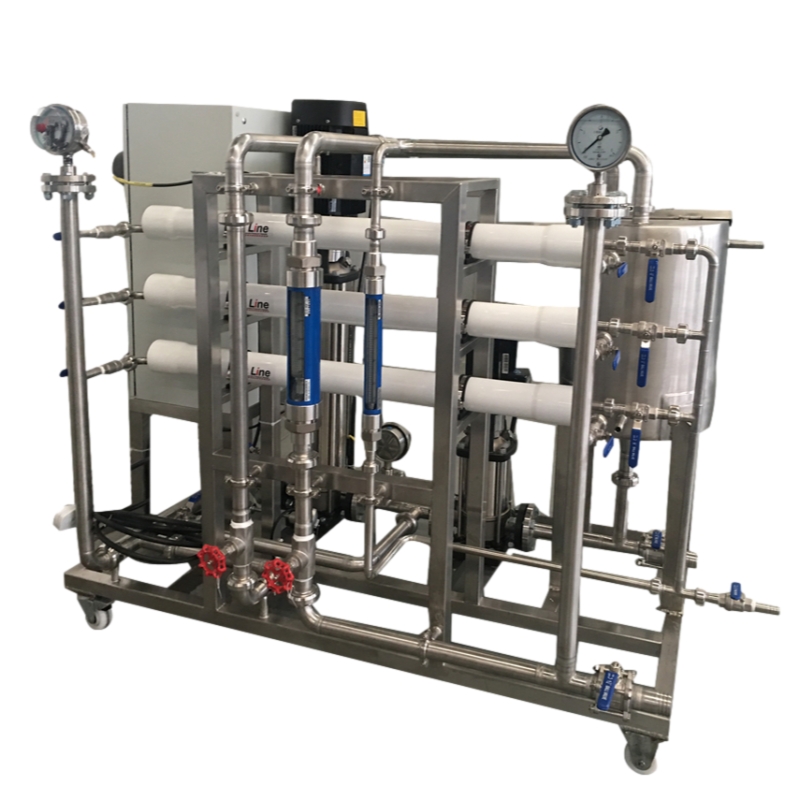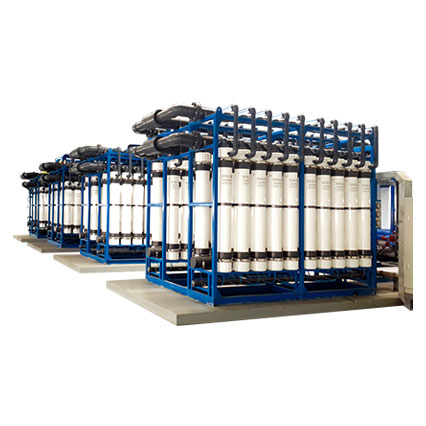The pretreatment workshop of Lithium extraction process adopts the international leading gradient coupling membrane separation technology, and the potassium fluoride from salt pans is subjected to magnesium-lithium separation and lithium concentration process to obtain high-purity lithium-rich brine, and is sent to the lithium plant to produce battery-grade lithium carbonate. The operation of the membrane equipment is fully automatic, the lithium yield can reach 80%, and it is at the leading level in the lithium recovery from brines.
The process flow chart of the pretreatment workshop
The potassium fluoride from salt pans is thoroughly mixed with the fresh water sent from the boundary area to reduce the magnesium ion concentration in the brine and then sent to the pre-treatment unit. In the pretreatment unit, the brine is removed by sand filtration to remove large particles of impurities and then sent to an ultrafiltration filter to remove all solid suspended matter. The pretreated purified brine is mixed with the fresh water reused in the workshop to further reduce the ion concentration and sent to the magnesium-lithium separation unit. In the brine purification process, it is separated into magnesium in the brine by a nano-scale membrane separation process in a magnesium-lithium separation unit to reduce the ratio of magnesium to lithium produced by the brine, and the high-magnesium old halogen is converted into a pure lithium chloride solution, and then sent to a lithium chloride primary concentration unit. The primary concentration unit uses a reverse osmosis membrane to concentrate the lithium chloride solution to increase the concentration of lithium chloride, and at the same time, fresh water is recycled to the former unit for dilution of the brine to achieve an internal balance of production water. The concentrated lithium chloride solution concentrated by the reverse osmosis membrane enters the secondary concentration unit, and the unit is further concentrated by the electrodialysis membrane to concentrate the lithium chloride concentrated water, and finally, the lithium-rich brine is sent to the sinking lithium workshop to produce battery-grade lithium carbonate.
Technical advantage analysis
The high-precision anti-pollution ceramic ultrafiltration membrane is used to purify the brine water, which can remove all solid suspended matter in the brine. The water recovery rate is high, the regeneration is easy, the service life is long, and the long-term stable operation can be maintained under the complicated salt lake brine condition.
The imported magnesium-lithium separation special membrane has high separation efficiency, low magnesium content, unique lithium enrichment effect, low lithium content in the outer row, and low lithium loss.
The imported reverse osmosis concentrated membrane has high ion rejection rate, good lithium concentration effect, no phase change in the concentration process, no steam consumption, and low energy consumption.
The imported electrodialysis membrane has high concentration efficiency, stable performance, long service life, no consumption of chemical agents, low operating cost, simple equipment, and high automation.
The process is simple, the equipment is compact, the degree of automation is high, the equipment selection standard is high, and no human intervention is required during the operation, and the equipment runs stable.
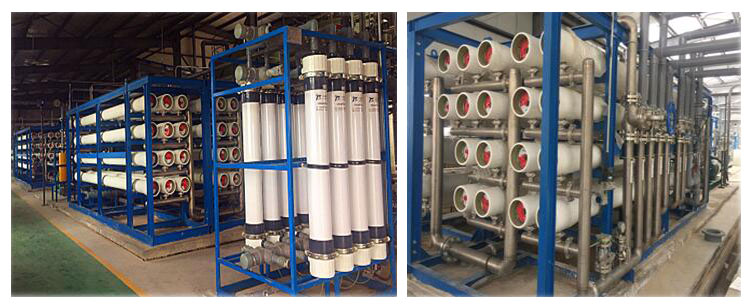 .
.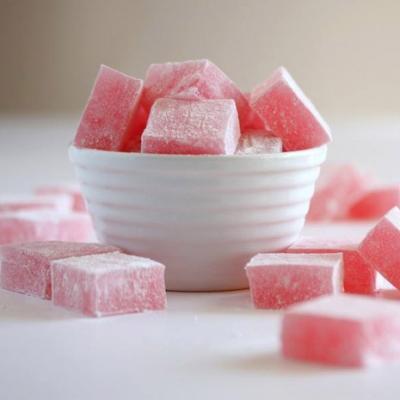
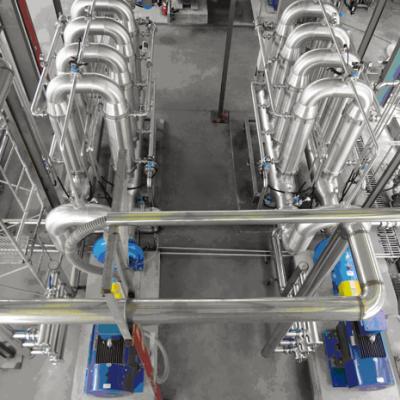
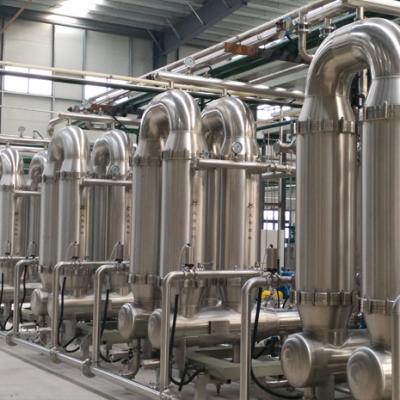
we will contact you within 24 hours.
 +86-25-58849045
+86-25-58849045
 +86-25-58749295
+86-25-58749295
 jiuwu@jiuwu.com
jiuwu@jiuwu.com
 No. 9 Park Road, Pukou District, Nanjing City (Sanqiao Factory)
No. 9 Park Road, Pukou District, Nanjing City (Sanqiao Factory) Call us on:
Call us on:  Email Us:
Email Us:  No. 9 Park Road, Pukou District, Nanjing City (Sanqiao Factory)
No. 9 Park Road, Pukou District, Nanjing City (Sanqiao Factory)

 English
English 한국어
한국어 français
français русский
русский Español
Español